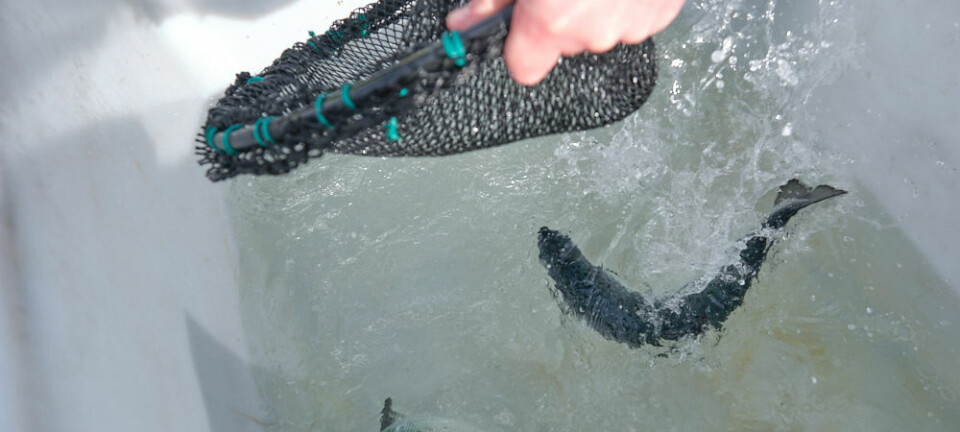
Salmon farming 'is changing too fast for five-year spatial plans'
Trend towards offshore sites means authorities shouldn't be too rigid, expert tells Holyrood
The fast pace of change in salmon farming means plans that rigidly define zones for aquaculture and other ocean uses could quicky become out of date, members of the Scottish Parliament have been told.
Shetland-based Dr Rachel Shucksmith, from the University of the Highlands and Islands (UHI), made the point while giving evidence to the Parliament’s Rural Affairs and Islands Committee (RAIC) inquiry on Wednesday.
The committee is looking at what progress made in implementing recommendations in 2018 by one of its predecessors, the Rural Economy and Connectivity (REC) committee, after its inquiry into the Scottish salmon sector.
Shucksmith, who is manager of the UHI’s marine spatial planning section that is responsible for delivering the Shetland Islands Regional Marine Plan, was asked by MSP Rachael Hamilton (Conservative, Ettrick, Roxburgh and Berwickshire) what she felt were the main issues with Scotland’s current marine spatial planning strategy and how they affected salmon farming.
A lot of opportunity
“We have an extensive sea area, but it has an awful lot of different considerations to take into account,” said Shucksmith. “But there is still a lot of opportunity for development and for things like renewable energy and for aquaculture as they both increasingly occur in an offshore environment rather than inshore.
“Being able to provide meaningful guidance that does not get out of date rapidly as technology changes is always going to be a challenge. The advancement of offshore aquaculture could mean that if we go for a highly zoned approach that we only review on a five-year cycle, that advice might not be as appropriate as initially perceived.
“In Shetland we have never adopted a strongly zoned approach so we can be adaptive and responsive to change.”
Locally appropriate
Hamilton then asked Shucksmith how a flexible approach fitted with the concept of a National Marine Plan.
“Expecting one size fits all is unrealistic because it is very diverse,” replied Shucksmith. “We see lochs on the west coast of Scotland where community structures are very different to the Western Isles, Orkney, and Shetland, so the marine regions having freedom to develop a locally appropriate response is important within that, rather than having one approach for the whole of Scotland.”
No map
The issue of defined zones was also raised by Edward Mountain (Conservative, Highlands and Islands), who is not a member of the RAIC but was convenor of the REC committee and is allowed to contribute to the inquiry.
Mountain, a hereditary baronet and the owner of some salmon fishing rights in Strathspey, asked if one of the REC committee recommendations for a map to be drawn up of where fish farms should and shouldn’t be allowed had been produced, and was told it hadn’t. The REC committee wanted salmon farms moved away from the routes taken by wild salmon smolts migrating to sea, because of the perceived risk caused by sea lice born in salmon pens.
Mountain asked witness Mark Harvey, planning team leader for Highland Council, how many applications had been received for relocation of fish farms “because they are a problem in their existing site”, due to high mortality in pens or because of the spread of lice to wild fish.
No problem farms identified
“I don’t think we’ve got to the first stage yet, because I
don’t think we’ve identified where there are problematic fish farms,” said
Harvey, who had earlier emphasised the impact that the Scottish Environment Protection Agency’s Sea Lice Risk Framework was likley to have on many aspects of farming.
“That is another aspect of the Framework that might be particularly useful because SEPA might well be able to identify such a thing, in which case we would certainly view relocation.
“How different relocation is from an application for a new fish farm is another matter, because we don’t control whether the company wants to close down the existing one, although that might be SEPA’s requirement, but we would obviously look at a fresh fish farm in much the same way as we’d look at any other application.”
Focused on reworking
Mountain said he found it depressing that the recommendation had not been acted upon, and asked Harvey if he, too, would be depressed if he was in his place.
“Not so much,” said Harvey, “because I don’t think relocation was the only issue. What I’ve seen since I was sat here previously is an industry that has become very much focused on reworking its existing units. Certainly in Highland we’ve actually dealt with a surprisingly low number of new fish farm sites but we’ve dealt with a very large number of reworking farm sites.
“Most of that is to do with making them more productive and more environmentally sustainable, so I think perhaps relocation is not the only issue.”
























































